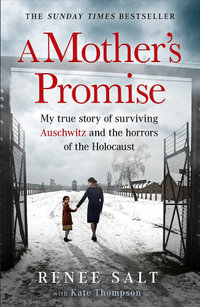
Among the Almond Trees
A Palestinian Memoir
By: Hussein Barghouthi, Ibrahim Muhawi (Translator)
Hardcover | 17 May 2022 | Edition Number 1
At a Glance
Hardcover
RRP $34.95
$28.40
19%OFF
Aims to ship in 7 to 10 business days
When will this arrive by?
Enter delivery postcode to estimate
Palestinian writer Hussein Barghouthi was in his late forties when he was diagnosed with lymphoma. He had feared it was HIV, so when the cancer diagnosis was confirmed, he left the hospital feeling a bitter joy because his wife and son would be spared. The bittersweetness of this reaction characterizes the alternating moods of narration and reflection that distinguish this meditative memoir, Among the Almond Trees.
Barghouthi’s way of dealing with finality is to return to memories of childhood in the village of his birth in central Palestine, where the house in which he grew up is surrounded by almond and fig orchards. He takes many healing walks in the moonlit shadows of the trees, where he observes curious foxes, dancing gazelles, a badger with an unearthly cry, a weasel, and a wild boar with its young—a return not only to the house but to nature itself. The author decides to build a house where he would live with his wife and son, in whom he sees a renewal of life. The realization of his impending death also urges him to vocalize this experience, and he relates the progress of the disease at infrequent intervals. And, ultimately, he details the imaginative possibility of a return to life—to the earth, where he would be buried among the almond trees.
Industry Reviews
"By unearthing the fairytales that his mother told him in his youth and adding his own mythologization of the countryside, Barghouthi challenges the settler colonial imaginary of Palestine... The memoir's political power lies in its celebration of and contribution to the poetics of the Palestinian countryside... Ibrahim Muhawi's masterful translation of this highly complex memoir is a much-needed step in the further dissemination of Arabic autobiographical writing at the global stage." * Washington Report on Middle Eastern Affairs *
"In his writings... Barghouthi strove to dull the sharp edges of whatever tries to obscure or diminish the very essence of human life." * On the Seawall *
"Stories have presence, which is what Barghouti brings forth in his memoir. The presence of Palestine permeates the book, and so does the author's presence, despite impending death." * Middle East Monitor *
ISBN: 9780857428967
ISBN-10: 0857428969
Series: The Arab List
Published: 17th May 2022
Format: Hardcover
Language: English
Number of Pages: 154
Audience: General Adult
Publisher: The University of Chicago Press
Country of Publication: GB
Edition Number: 1
Dimensions (cm): 23.5 x 16.0 x 1.3
Weight (kg): 0.33
Shipping
| Standard Shipping | Express Shipping | |
|---|---|---|
| Metro postcodes: | $9.99 | $14.95 |
| Regional postcodes: | $9.99 | $14.95 |
| Rural postcodes: | $9.99 | $14.95 |
How to return your order
At Booktopia, we offer hassle-free returns in accordance with our returns policy. If you wish to return an item, please get in touch with Booktopia Customer Care.
Additional postage charges may be applicable.
Defective items
If there is a problem with any of the items received for your order then the Booktopia Customer Care team is ready to assist you.
For more info please visit our Help Centre.























